First published by Bibliomotion, Inc.
Copyright 2016 by John H. Johnson and Mike Gluck
All rights reserved. No part of this publication may be reproduced in any manner whatsoever without written permission from the publisher, except in the case of brief quotations embodied in critical articles or reviews.
Names: Johnson, John H., author. | Gluck, Mike, author.
Title: Everydata : the misinformation hidden in the little data you consume every day / John H. Johnson, Mike Gluck.
Description: First Edition. | Brookline, MA : Bibliomotion, 2016.
Identifiers: LCCN 2015041504 (print) | LCCN 2016004445 (ebook) | ISBN 9781629561011 (hardback) | ISBN 9781629561028 (ebook) | ISBN 9781629561035 (enhanced ebook)
Subjects: LCSH: Econometrics. | Consumer behavior. | BISAC: BUSINESS & ECONOMICS / Econometrics. | BUSINESS & ECONOMICS / Consumer Behavior. | SOCIAL SCIENCE / Popular Culture. | BUSINESS & ECONOMICS / Decision-Making & Problem Solving.
Classification: LCC HB139 .J636 2016 (print) | LCC HB139 (ebook) | DDC 646.7001/5195dc23
In the spring of 2010, the National Football League owners wanted, among many other things, to extend the regular season by two games. As executive director of the NFL Players Association (NFLPA), I knew this was a bad idea. More games equal more injuries in a game that already has a 100 percent injury rate. More injuries would mean more careers cut short for athletes whose average careers are already just a little more than three years. Our union faced serious concerns about player safety, compensation, and how to protect the men who, every week during the season, put themselves on the line in Americas most beloved sport.
Professional football is a multibillion-dollar industryand growing. But in 201011, facing the first potential work stoppage in over a decade, I needed a sure way to prove that the season needed to remain at sixteen games.
I called John Johnson.
John is an expert on economics, statistics, and data, and he makes even the most complicated data concepts seem simple and straightforward. In short, he is probably one of the smartest guys I know. He is able to explain things carefully and thoughtfully and tailor his explanations to the level of any audience and, most importantly, hes never boring!
Like every football fan in America, the NFLPA wanted to save the upcoming NFL season, so we gave John our data. John and his colleagues developed models that showed when and how often players were injured. They identified the precise plays that had the most serious injuries (leading to the kickoff rule, which had a dramatic impact on player safety). They estimated the potential economic losses from extending the NFL season to eighteen gamesusing data to predict how much shorter, on average, each players career would be. And they worked with us to help quantify the actual value of each NFL game to the surrounding communities, helping us all to better understand the true economic impact of the potential season-ending lockout.
In the end, Johns ability to explain the data to our players, the media, and especially to the NFL owners (who pay exceptionally close attention to words like losses), helped us make decisions to reach our prime objective, safeguarding the health and safety of our players, and eventually conclude contentious negotiations with a ten-year deal historic in its benefits and advantages to the players of the NFL.
This book represents Johns thinking at its very best. I am confident that it will help you make better decisions in your everyday life. In these pages, youll learn how to understand, interpret, and think about all of the data you consume each and every day. Through hundreds of examples, John and his coauthor, Mike Gluck, get right to the heart of the issues, taking the complex and making it easy to picture (and sometimes laugh-out-loud funny). Dont be surprised to find yourself nodding along at every aha moment, and questioning every fact you see at home and at work.
Heres a fact that cant be denied: the amount of data in your everyday life is growing rapidly and coming at you from every possible direction. Thats why its so important to know how data can be used and abused. Ive experienced the power of data firsthand, but you dont need to be in sudden-death overtime with some of the wealthiest individuals in the world to see how important it is to understand and manage your data. If you watch TV, go shopping, have a job, or eat at restaurants, then this book is for you. Everydata fills a critical void at a critical time, and it does so with great insight, attention, and charm.
This is your playbook for becoming a better, smarter, and more confident consumer of data.
Enjoy.
DeMaurice F. Smith
Executive Director
NFL Players Association
What the heck is happening in Minnesota?
During a 10-day span in the summer of 2015, authorities announced three food product recalls for Salmonella contamination. All three of these cases were traced back to people who got sick in Minnesota.
The companies involved ended up recalling approximately 3.7 million pounds of chicken products, along with an unspecified amount of yellowfin tuna.
But why Minnesota?
Was all of the contaminated food processed in Minnesota? (No.) Was all of it shipped there? (No.) Are people in Minnesota more likely to get sick from Salmonella? (Not that we know of.)
The connection, as Yahoo! Health reported, is simple: Minnesota is just better at identifying cases of foodborne illnesses than other states.
Some people might have heard about three food recalls linked to Minnesota, and assumed the food wasnt safe there.
But thats not the case. If anything, because of the ongoing diligence of Minnesotas Departments of Health and Agriculture, its quite possible youre better off there than in other areas of the country.
Every day, youre surrounded by media reports and other sources that are often filled with hidden informationand misinformation. This book will help you identify it, interpret it, and become an educated consumer of data (a fancy word for information or facts).
Throughout this book, well answer questions like:
 How did a false news report wipe out $136 billion in value from the stock market? ()
How did a false news report wipe out $136 billion in value from the stock market? ()
 Could the Fukushima nuclear disaster have been prevented? ()
Could the Fukushima nuclear disaster have been prevented? ()
 What do four out of five pediatricians think about baby food? ()
What do four out of five pediatricians think about baby food? ()
 How do you know which presidential candidate is really leading the polls? ()
How do you know which presidential candidate is really leading the polls? ()
And, of course



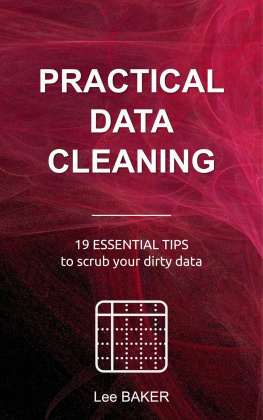
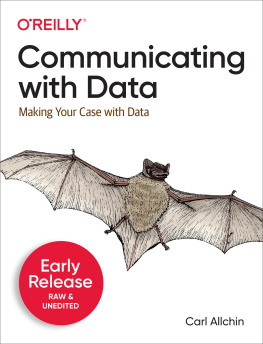
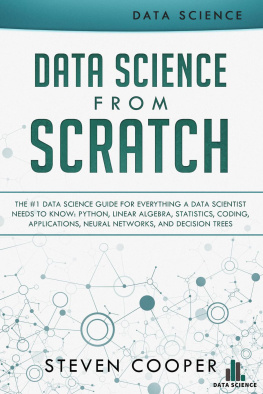
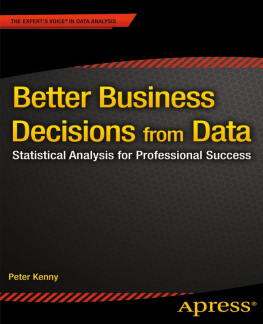

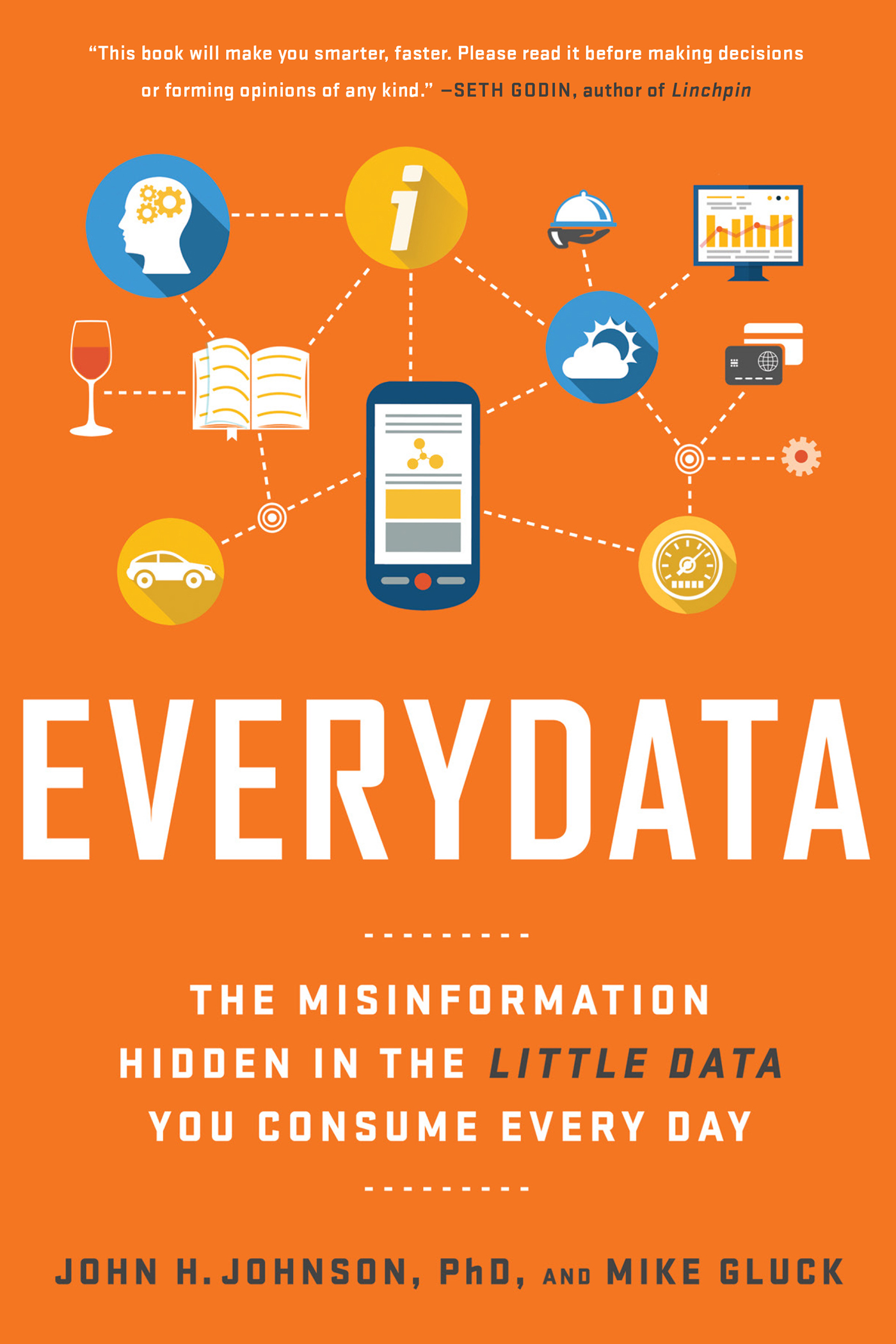
 How did a false news report wipe out $136 billion in value from the stock market? ()
How did a false news report wipe out $136 billion in value from the stock market? ()